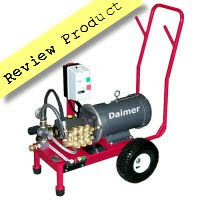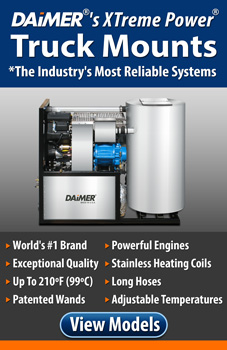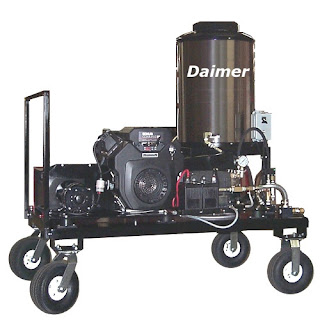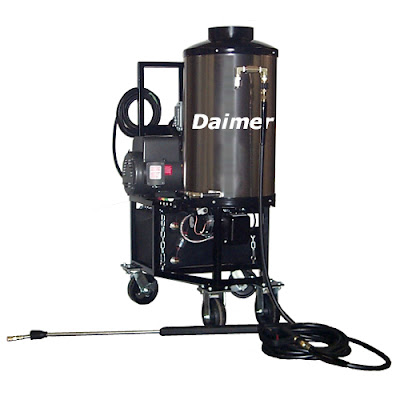
There are three basic types of pressure washers available for purchase on the market today: cold water machines, hot water machines, and steam pressure cleaners. Choosing a machine based on temperature can help you complete job applications quickly and effectively.
Cold water pressure washers do not provide heated output. These machines are ideal for applications where heat is not needed, such as cleaning light dirt and stains from concrete or buildings. Hot water machines provide temperature levels up to 210°F. These machines are often used for applications that require heat to break down stains and dirt. In addition, there are also steam pressure cleaners that can reach temperatures up to 330°F. These machines are ideal for degreasing and heavy industrial cleaning tasks. For those requiring all three types of output, tri-mode machines are available.
Among these machines, cold water pressure washers are the least expensive, as these machines do not have a heating element. In many cases, the output pressure of these machines can compensate lack of temperature. Cleaning chemicals, such as Daimer®’s Eco-Green® line of green cleaners, can be used as well for additional cleaning power when using the machine. As a result, many cleaning companies consider cold water machines as the most cost effective. The following are some tips to select good quality cold water pressure washers.
Pressure Level
Output pressure of cold water machines can vary up to 8000 psi. For residential and light commercial uses, a pressure level of around 1000 psi to 1500 psi would suffice. For industrial applications, machines should offer an output pressure in the range of 3000 psi or above.
Another important specification is flow rate. It denotes the quantity of water passed on to the surface and is expressed in gallons per minute. Usually, flow rate increases with the increase in output pressure. However, in some cases, such as auto detailing, machines with low flow rates are preferred.
Cold water pressure washers do not provide heated output. These machines are ideal for applications where heat is not needed, such as cleaning light dirt and stains from concrete or buildings. Hot water machines provide temperature levels up to 210°F. These machines are often used for applications that require heat to break down stains and dirt. In addition, there are also steam pressure cleaners that can reach temperatures up to 330°F. These machines are ideal for degreasing and heavy industrial cleaning tasks. For those requiring all three types of output, tri-mode machines are available.
Among these machines, cold water pressure washers are the least expensive, as these machines do not have a heating element. In many cases, the output pressure of these machines can compensate lack of temperature. Cleaning chemicals, such as Daimer®’s Eco-Green® line of green cleaners, can be used as well for additional cleaning power when using the machine. As a result, many cleaning companies consider cold water machines as the most cost effective. The following are some tips to select good quality cold water pressure washers.
Pressure Level
Output pressure of cold water machines can vary up to 8000 psi. For residential and light commercial uses, a pressure level of around 1000 psi to 1500 psi would suffice. For industrial applications, machines should offer an output pressure in the range of 3000 psi or above.
Another important specification is flow rate. It denotes the quantity of water passed on to the surface and is expressed in gallons per minute. Usually, flow rate increases with the increase in output pressure. However, in some cases, such as auto detailing, machines with low flow rates are preferred.




































